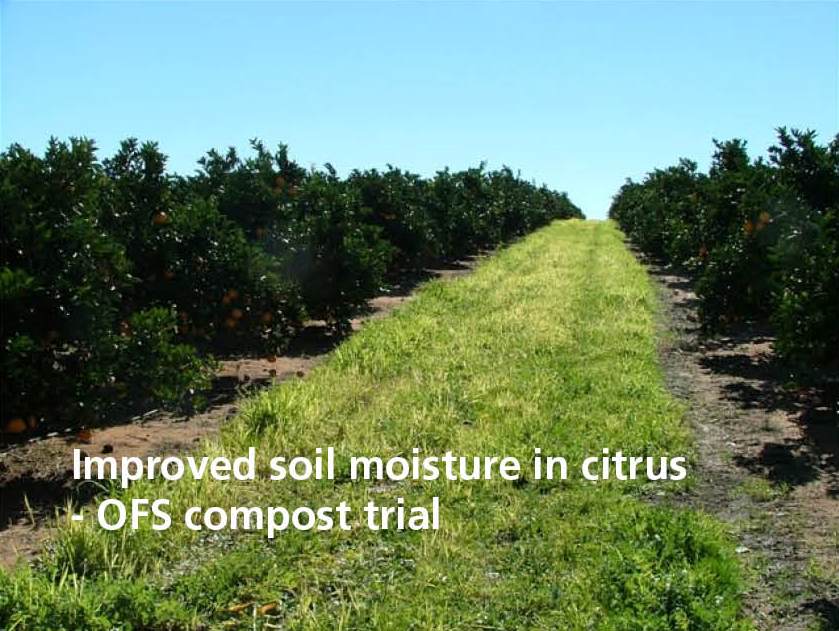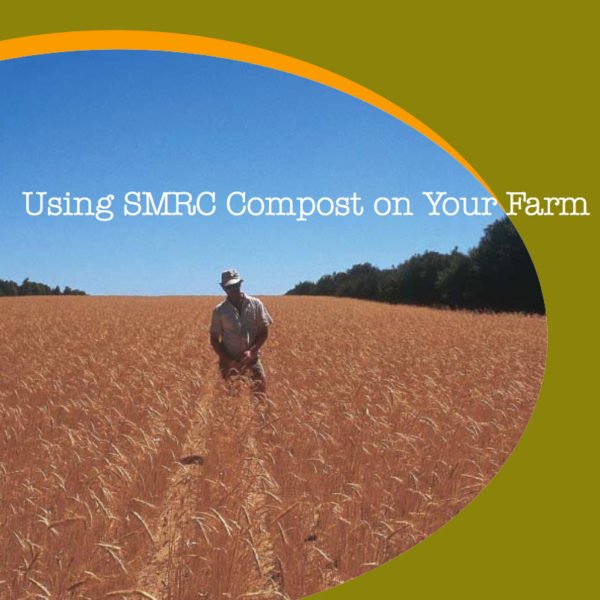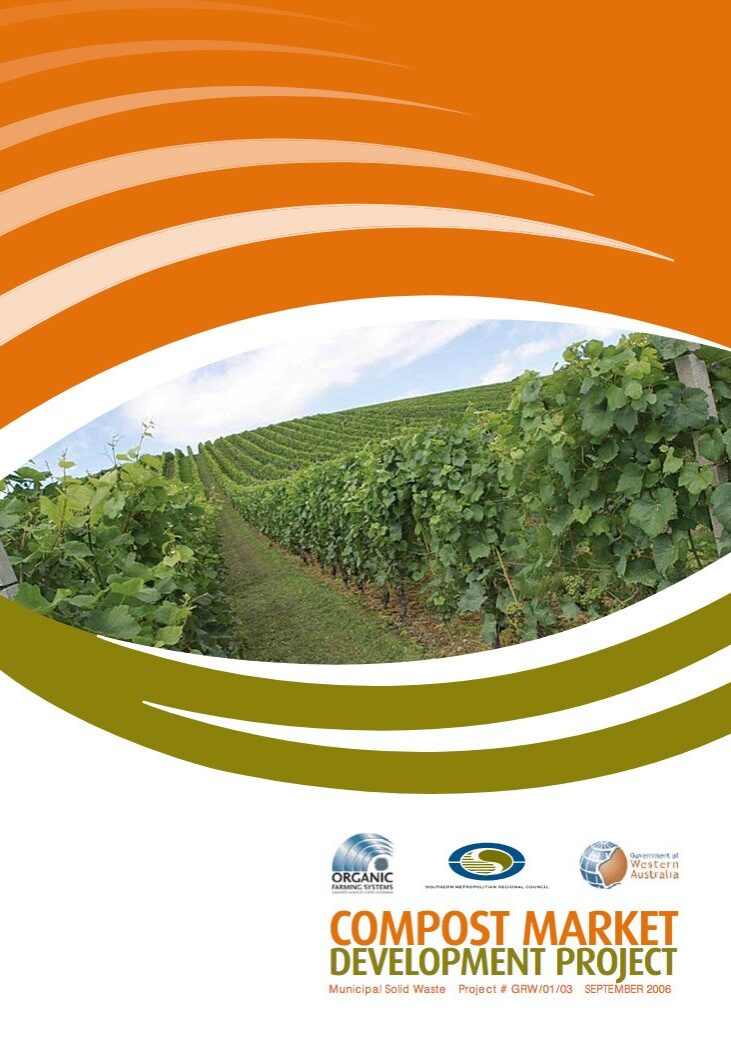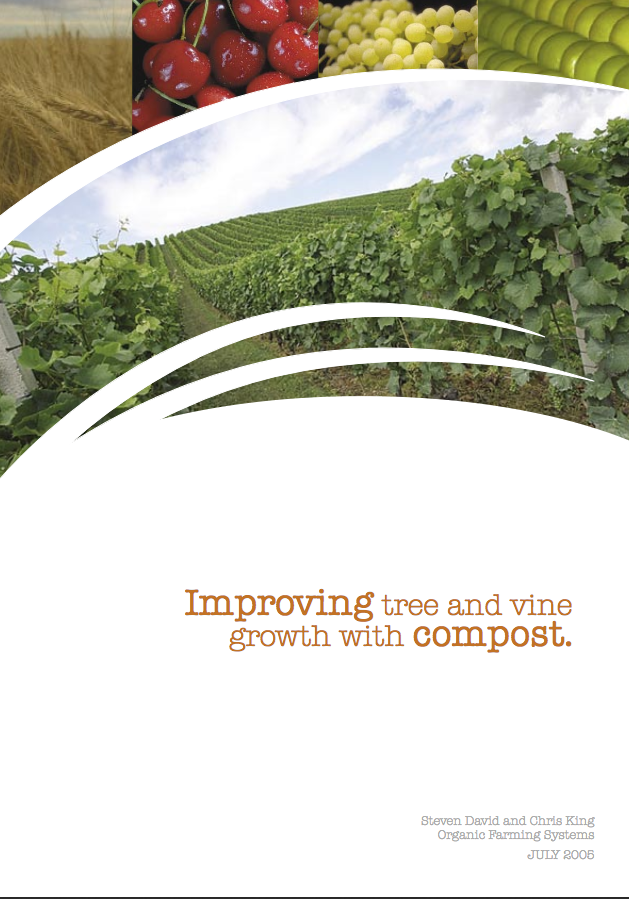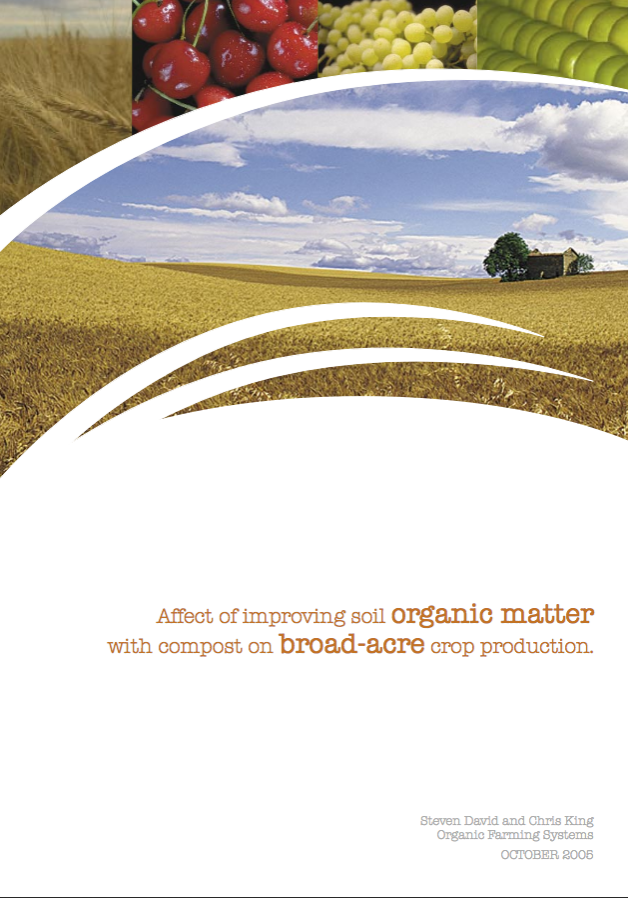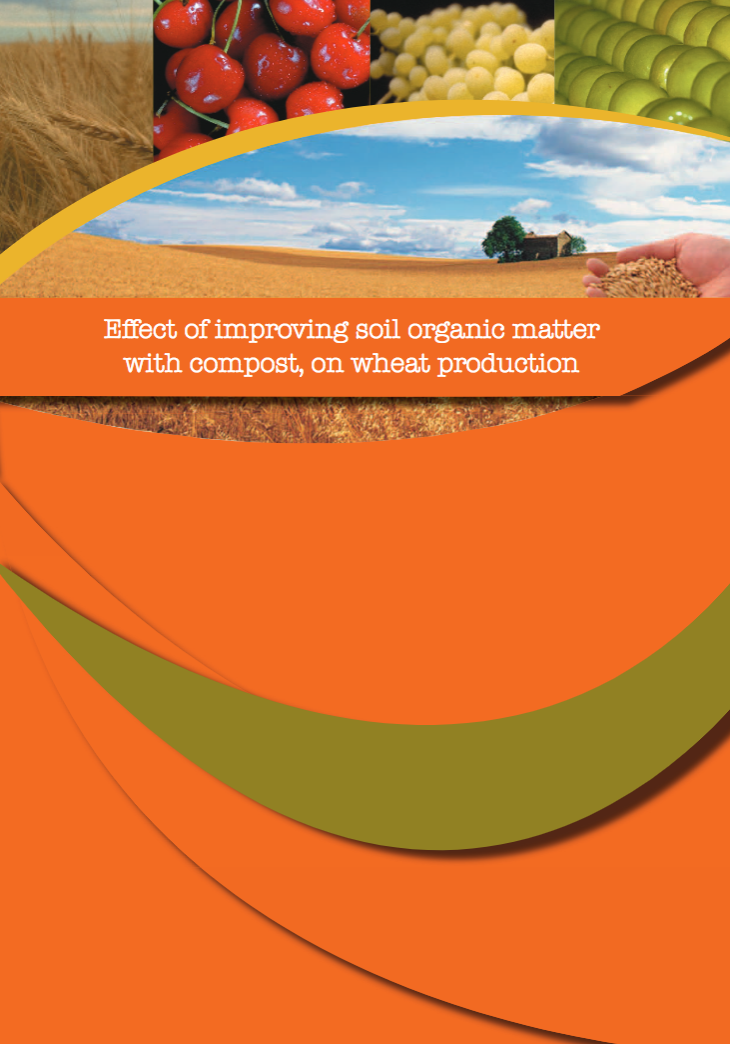Build Better Soil Health
You can have a major influence on the quality of your soil.
How Composting Benefits Your Farm
Compost is a way of returning safe, easily mineralised, organic matter, or humus, to the soil. Even though organic matter is a relatively small fraction of soil content, it can have a dynamic influence on the health of the soil as a whole.
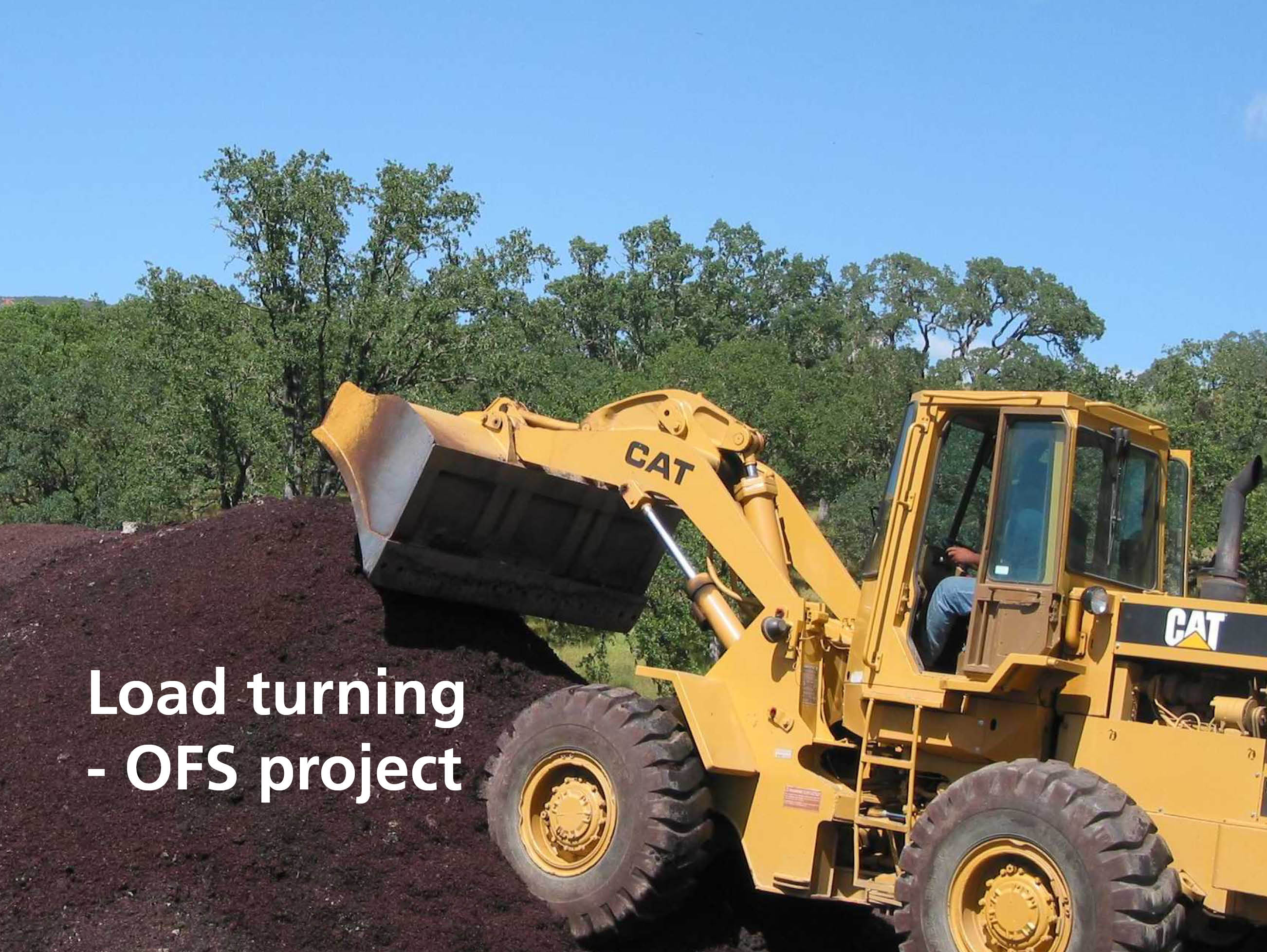
Our Compost Production Services
Our extensive Compost Consultancy Services include:
- Feasibility studies, including financial aspects and site assessment
- Quality control systems for producing quality compost
- Monitoring of compost quality
- Trouble shooting compost production problems
- Staff training packages – producing quality compost every time; soil organic matter management
- Compost facility establishment and management using a range of inputs including municipal solid waste (MSW), green waste, animal manure, cardboard, straw, abattoir waste and more
- Compost use in agriculture
- Marketing of compost to farmers
- Farm management plans integrating compost into cost-effective and sustainable farming practices
- Seminar speaker – soil organic matter management, compost production
Why Consult with us?
Sustainable Farming System has over 20 years expertise with organic composting including:
- Composting on farm
- Large scale compost facility establishment
- Using compost – OFS ran the largest compost demonstration project (over a 3 year period) there has ever been in Australia
Our Experience with Composting
Organic Farming Systems has been advisor (and operator in some cases) for the development of many compost sites in Western Australia, and has consulted with and trained clients in all states of Australia.
Organic Farming Systems ran the largest farm compost demonstration project in Australia, highlighting the benefits of compost to both broad-acre and horticultural farmers. This project demonstrated outstanding improvements in soil fertility and crop yields using MSW compost.
Organic Farming Systems’ extensive knowledge and understanding of compost means we know how and when to apply compost to maximise returns to farmers. This was evident in the large scale Farm Compost Demonstration Project where flexibility and innovation were critical in achieving such positive outcomes. Many innovative approaches were used in this project, including trialling cost effective pellets, examining residual effects of compost and examining microbiological activity in the soil after compost application, to name a few.
Clients have included Eastern Metropolitan Regional Council (Red Hill green waste composting), Southern Metropolitan Regional Council (quality control program – Canningvale), Rottnest Island Authority, Cape Mentelle Vineyards, The Compost Company, Custom Composts and Compost Resources.
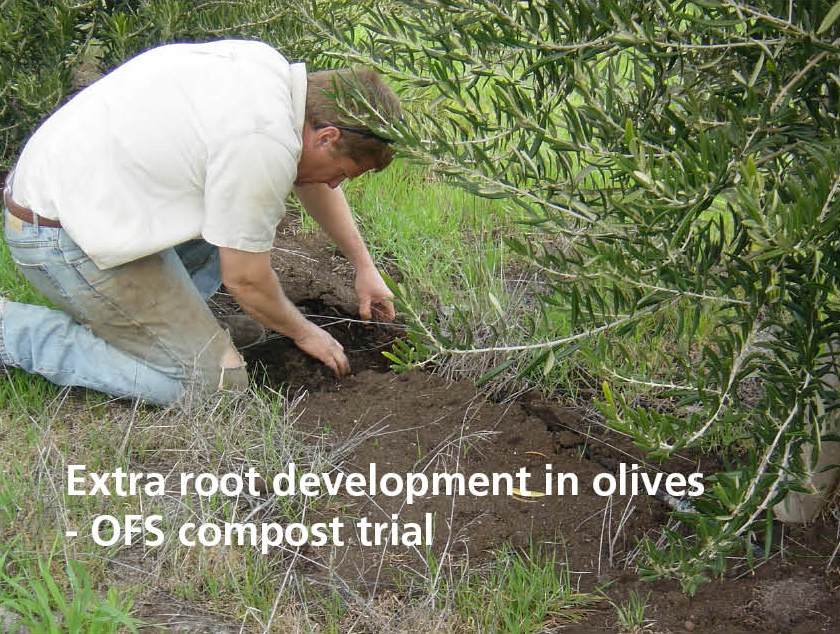
Australia's Largest Farm Compost Project
Sustainable Farming Solutions managed the largest Farm Compost Demonstration project in Australia.
This project was established by Western Australia's Southern Metropolitan Regional Council (SMRC), supported by the State Government, as a means of generating interest in the use of compost in both broadacre (cereal) and horticultural crops.
The Farm Compost Demonstration project was a two-year trial where participating farms incorporated compost into their farming practices.
SMRC compost was produced in a state-of-the-art in-vessel composting plant where a comprehensive quality control program ensures it adheres to Australian Compost Quality Standards.
Results from the broad-acre and horticultural program:
- Broadacre: Approximately twenty broadacre farms growing wheat, barley, oats and canola used SMRC compost and their normal fertiliser program. Up to 39% increase in wheat yields.
- Horticulture: Twenty five horticultural properties growing wine and table grapes, stone fruit, apples, pears, avocados, olives, turf and citrus included compost into their fertiliser program. Results - improved fruit sugars and yields.
Project Manager
Sustainable Farming Solutions
(formerly Organic Farming Systems )
PO Box 419, Cottesloe
Western Australia 6911
Tel: 9384 3789
Fax: 9384 3379
Email: compost@organicfarming.com.au
How To Use Compost To Boost Crop Yield
Composting
Composting animal manures and agricultural waste is not a new process, but is one which has regained focus around the world. This is because environmental issues are forcing the reduction of use of raw manure and we have rediscovered that there are good scientific reasons why compost is a better form of nutrients for our agricultural crops. The use of composted manures in sustainable agricultural systems results in good yields and equivalent or improved quality produce.
The compost process is the combination of materials (manures, straw, green waste etc) that are then digested by naturally occurring microbes into a material that is available to plants for use as a nutrient source. The process relies on the right combination of carbon (wood, straw) and nitrogen (pig, poultry manure), the right moisture content and an ability to blend and aerate the materials.
By closely managing the composting process, we develop high levels of humus and consequently the compost has an ability to hold nutrients and water reducing the leaching of nutrients, particularly nitrogen, during the growing of crops.
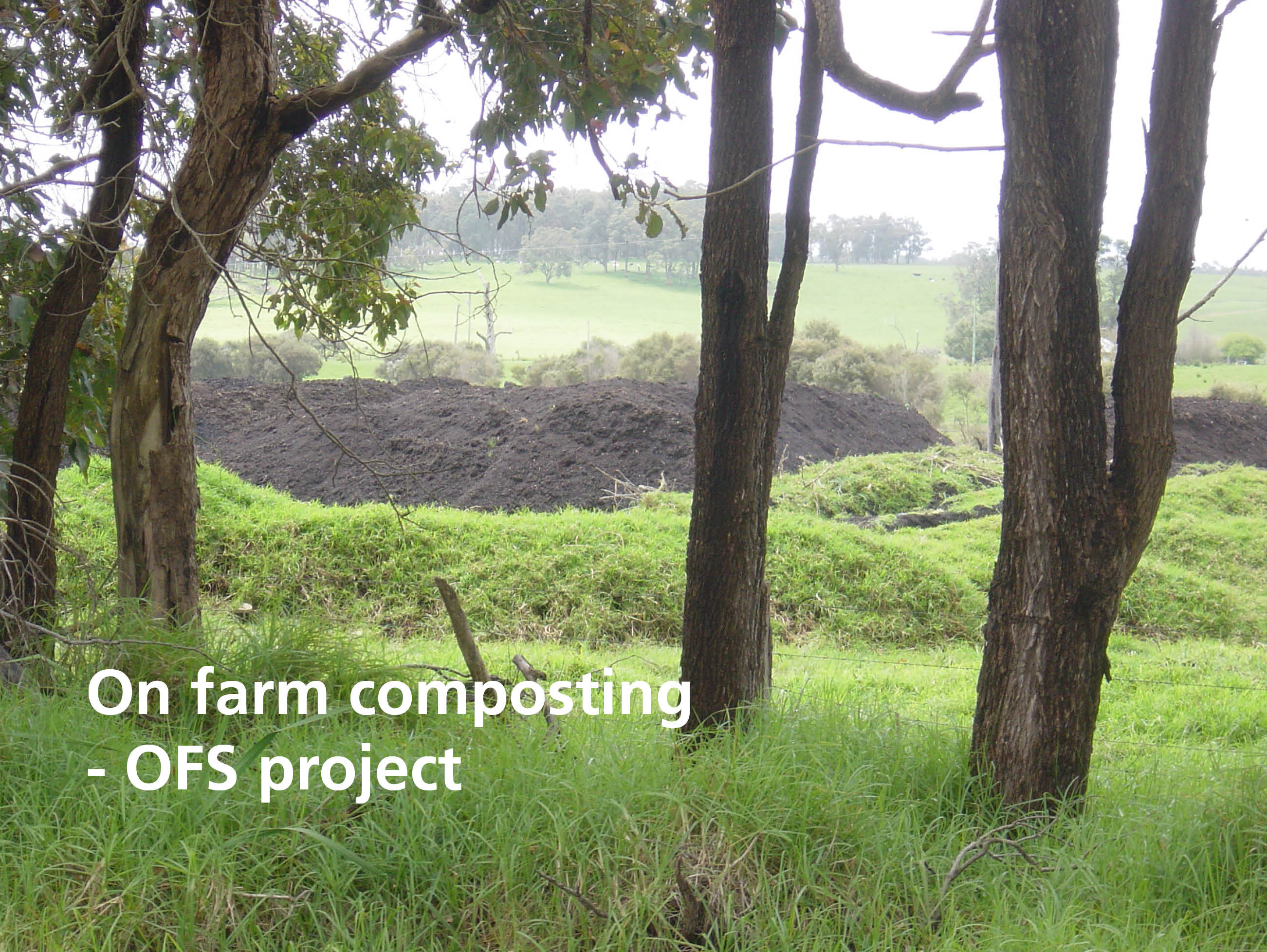
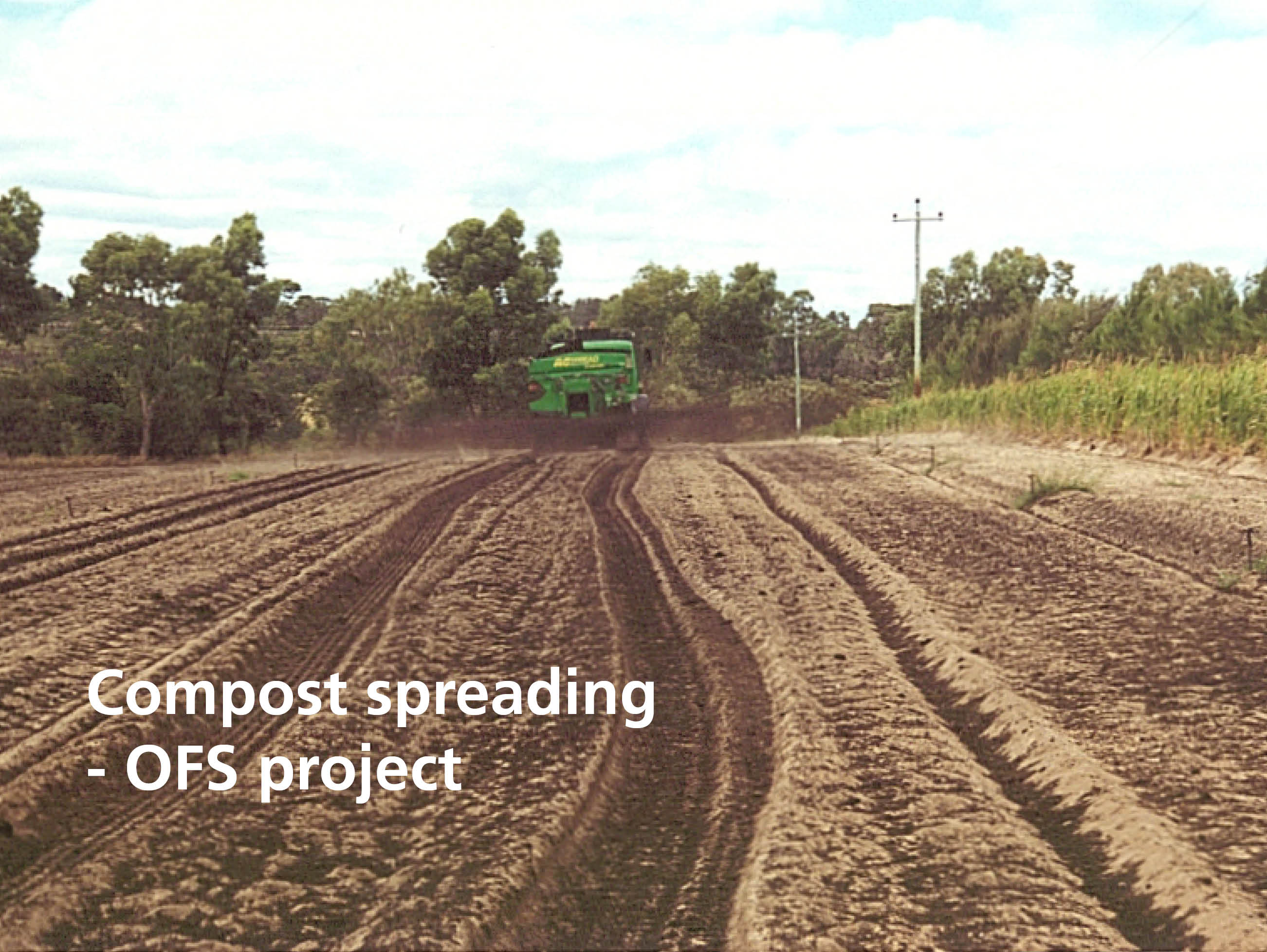
Types of Compost
There are three basic types of compost defined by the way we use them:
- Above Ground - mulch plus nutrients
- In ground - horticultural soil amendment
- Fine or top dressing material - turf, ovals, etc
Quality Compost
Using good quality compost in agriculture has the potential benefits of improving nutrient cycling, soil improvement, enhancing crop health and reducing chemical usage. However some composts of inferior quality may actually have a detrimental effect on crops or soils.
The following list summarises the general requirements for a quality product:
- High degree of biological activity
- pH in the 7 - 7.5 range
- High cation exchange capacity
- High level of humus to total organic matter
- Nutrients fixed stably into humus and microbes
- No toxic anaerobic compounds that are harmful to plant growth
- Low C/N ratio (<17:1)
Australian Standard AS 4454-1999 specifies some basic requirements for composted materials, but is a voluntary code for compost producers. This means that the purchasers should reassure themself that the product meets their requirements through laboratory analysis for nutrients, AS 4454-1997 and asking for the raw ingredients for the compost in question.
Compliance with the Australian Standard ensures there will be no heavy metals or adverse affect on crop growth from a high C:N ratio (nitrogen draw down)
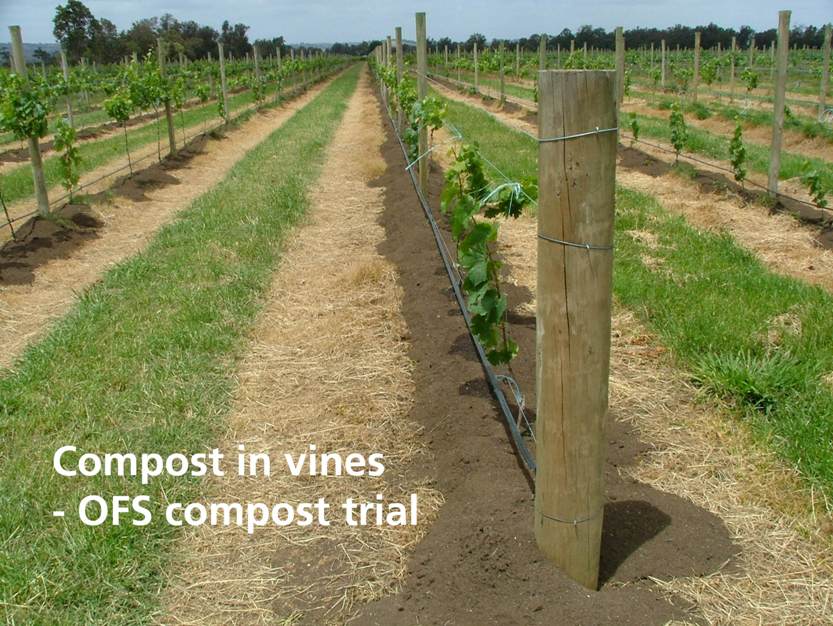
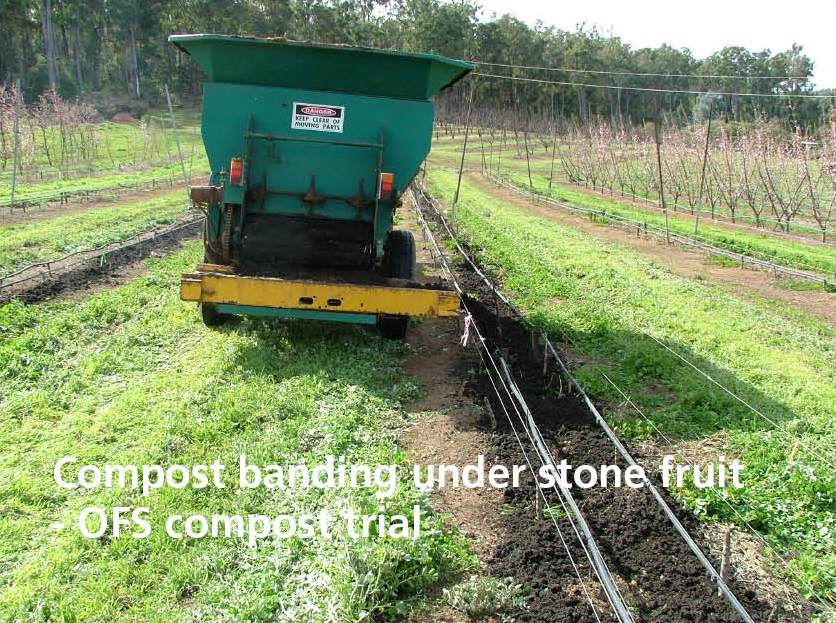
Compost as a Nutrient Source
Because the starting materials are derived from plants they tend to contain many of the macro and micronutrients required for plant growth.
It is not possible to look at compost and determine compost quality, the nutrient content or plant performance levels expected. Consequently, we use laboratory analysis as the only reliable way of determining compost quality.
Systematic Approach
To use compost properly requires a systematic approach to farming of any kind. This means that we should address a range of issues that will affect the health of the soil and the effectiveness of the compost. A biologically active soil is the key to a low chemical input systems.
By inoculating the soil with composted organic matter and microbes we are starting on the road back to healthy soil. Healthy soil contains microbes that actively breakdown organic matter into nutrients that can be used by plants. Natures system feeds plants by cycling these nutrients through the soil. Healthy soils have nutrient cycling through organic matter management.
For the nutrient cycling to occur at the optimum level for plant growth we need to ensure that the soil is balanced in three ways:
- Chemically - nutrients
- Biologically - microbiological
- Physically - structure
Compost Use
Compost is most commonly used at rates between 5 and 20 tonne per hectare. 20 tonnes per hectare is the maximum rate allowed by NASAA (National Association for Sustainable Agriculture, Australia). Compost is a bulky material and applied in fairly high rates. It requires specific equipment to handle the large volume of material. Manure spreading equipment can be used to spread on open ground and there are contractors that specialise in this, although vine and orchard situations may require specific equipment.
The composts we have been discussing are used as “in ground” materials (not mulches) and need to remain moist to encourage the survival of the microbes. As a result they give most benefit when incorporated into the soil. In situations where tillage is not an option farmers need to find some way of keeping the material moist. For example, spreading the compost before mulching or mowing cover crop
